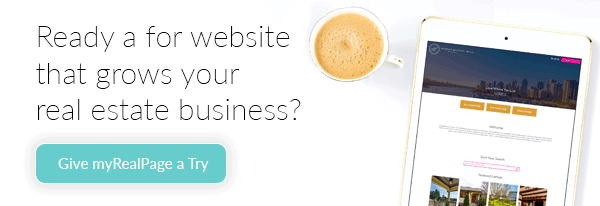Maximizing User Interaction on Real Estate Agent Websites

Having a strong online presence is crucial for a real estate agent. A well-designed website can be a powerful tool for their marketing arsenal of tools. It can attract potential clients, showcase properties, and establish the agent as a trusted expert. But creating a real estate agent website is just the first step.
The real challenge lies in maximizing user interaction.
This involves engaging visitors, encouraging them to explore, and ultimately converting them into clients.
In this guide, we’ll explore strategies and best practices to enhance user interaction on real estate agent websites.
Understanding the Importance of User Interaction
User interaction is a key metric in determining the success of a website.
It measures how users engage with your site, whether they’re browsing property listings, reading blog posts, or filling out contact forms.
High user interaction indicates that your real estate website is providing value to visitors. It shows that your content is engaging and your site is easy to navigate.
In the context of real estate agent websites, maximizing user interaction can lead to more leads, more property viewings, and ultimately, more sales.
Engaging Content and Interactive Features
Engaging content and interactive features can significantly enhance user interaction on real estate agent websites.
They not only provide value to the users but also keep them engaged and encourage them to take action. What is engaging content? Glad you asked! Here you have a few examples of content that can keep visitors longer on your website:
Professional and Visually Appealing Design
A professional and visually appealing design is the first step to attracting and retaining users.
It sets the tone for the user’s experience and can significantly impact their perception of your brand.
Tip: Update your real estate template every two years at least. Take some time to either explore new design inspirations or choose a new real estate website template if you’re a myRealPage customer. Swapping a template is very easy. If you need any help, don’t hesitate to ask our support staff.
User Experience (UX) and Navigation
User experience (UX) and navigation are crucial for any website.
For real estate agent websites, it’s important that users can easily find what they’re looking for, whether it’s property listings, contact information, or resources about the buying or selling process.
Tip: Make sure you have clear call to action images on your homepage linked to pre-defined searches. Think about what are the searches your potential clients would like to do and place these on your homepage. They’ll be able to find “Waterfront Homes” or “Lofts under 1 Million” pretty easy if you create these for your niche market.
Virtual Tours and Interactive Floor Plans
Virtual tours and interactive floor plans can provide users with a realistic view of the property.
Tip: Embedding a virtual tour on your listings is as easy as copying a piece of code and pasting it where you desire it on your listing with our websites. This immersive experience can engage users and help them make informed decisions.
Effective Call-to-Action (CTA) Placement
Effective placement of call-to-action (CTA) buttons can guide users towards taking the desired action.
Tip: Whether it’s contacting the agent, scheduling a viewing, or signing up for a newsletter, a well-placed CTA can significantly increase conversions.
Client Testimonials and Success Stories
Client testimonials and success stories can significantly enhance the credibility of a real estate agent.
Tip: Provide real-life examples of satisfied clients, which can instill confidence in potential clients.
Conclusion: The Path to a More Interactive Website
Maximizing user interaction on real estate agent websites is a continuous process. It involves regular updates, constant monitoring, and frequent optimization based on user behavior and feedback.
By implementing the strategies discussed in this guide, you can create a more engaging and user-friendly website. This will not only attract more visitors but also convert them into potential clients, ultimately boosting your real estate business.
Last Updated on July 23, 2024 by myRealPage



